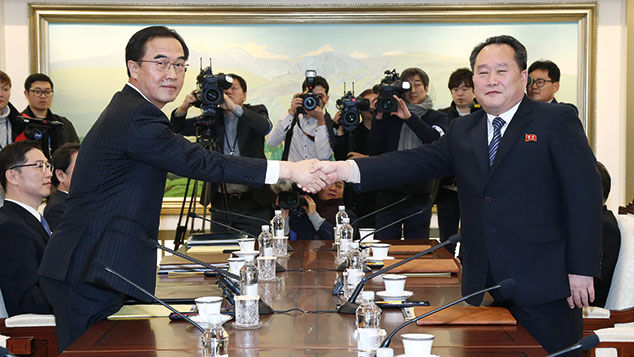
“Has diplomacy already peaked for the year?” asks Ankit Panda in The Diplomat. After a dispiriting 2017, 2018 has got off to a better start. Inter-Korean diplomacy has resumed at the border village of Panmunjom for the first time in two years ahead of the upcoming Winter Olympic games in the South. The two sides have also agreed to hold military talks.
The danger is that Moon Jae-in, the South’s president, ends up getting played by the North’s famously tough negotiators, says Nicholas Eberstadt in The New York Times. Even before talks had properly begun, “the North had pocketed its first concession” – a delay to a joint US-South Korean military exercise. With new sanctions threatening the North’s fragile economy, Pyongyang is only talking now because it “regards South Korea as the weakest link in the gathering global campaign to pressure North Korea to denuclearise”.
“There are compelling first-hand reports that sanctions imposed by the international community are [finally] hurting North Korea,” agrees Julian Ryall in The Daily Telegraph. “The regime simply cannot survive without fuel, spare parts or upgrades for its military or its industry.” Any attempt to defuse tensions is “welcome”, yet South Koreans know that they have “been here before”. Previous victories for “sunshine politics” have been followed by advances in the North’s nuclear programme.
“The North’s strategy of focusing on ethnic pride and unity” is “a clear attempt” to pry Washington and Seoul apart, adds Eric Talmadge of the Associated Press. It’s not clear how Washington sees the talks, but it probably needn’t worry. The discussions are “by design incremental and exploratory. It’s hard to imagine any breakthroughs or policy shifts by the South on the biggest issues – denuclearisation foremost among them – without US consultations.”